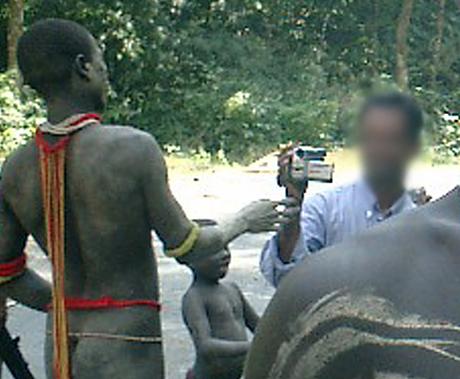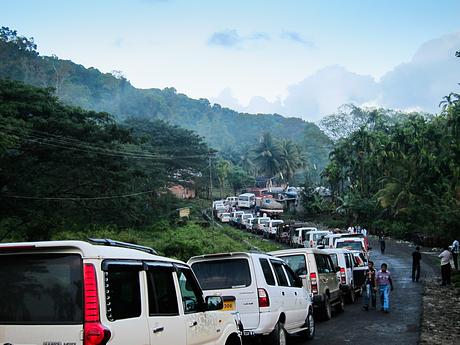Indian islands challenge Supreme Court move to end ‘human safaris’
July 24, 2012

This page was last updated in 2012 and may contain language which is now outdated.
A ruling by India’s Supreme Court which would have drastically curtailed the notorious ‘human safaris’ in the Andaman Islands is being ignored by the islands’ authorities.
Earlier this month India’s Supreme Court imposed a 5-kilometer buffer zone around the Jarawa Reserve, to help reduce the exploitation of the tribe by tourists.
The ruling puts an end to tourist resorts near the Reserve, and closes other commercial attractions such as the Islands’ mud volcano and limestone caves. However, at the time of going to press, more than two weeks on, the volcano and caves remain open.
Activists have welcomed the ruling as, even though it did not close the Andaman Trunk Road (ATR) that runs through the Reserve, it would significantly reduce the amount of traffic using it.
At least 250 vehicles use the road through the Reserve on a daily basis, and many are tour operators, transporting visitors from the south of the islands. Officially they are travelling to see the volcano and caves, but for many their real reason for taking the trip is for the ‘human safari’ en route.

If enacted properly, the new buffer zone will significantly minimise the number of tourists on the road, as there will be little reason for tour operators to use the ATR.
However, the Andaman administration is refusing to close the volcano and cave sites, having appealed for the Supreme Court to exclude them from its recent order.
The Andaman administration has now filed a plea to the Supreme Court for an eight-week suspension period so it can submit plans for a new buffer zone. It is believed that these will not include the cave and volcano.
Survival’s Director Stephen Corry said today, ‘The Supreme Court missed an opportunity by leaving the ATR open – the main artery to India’s ‘human safaris’. However the decision to close the caves and mud volcano is a positive step and would deny tour operators the chance to run human safaris by stealth. If the mud volcano and limestone caves remain open, hundreds of tourists will continue to drive through the reserve every day ogling at the Jarawa. The Andaman administration must demonstrate its commitment to ending these tours by closing the cave and volcano.’
Note to Editors:
Survival first brought the existence of the ‘human safaris’ to global attention in 2010.
View the Andaman’s mud volcano here:




